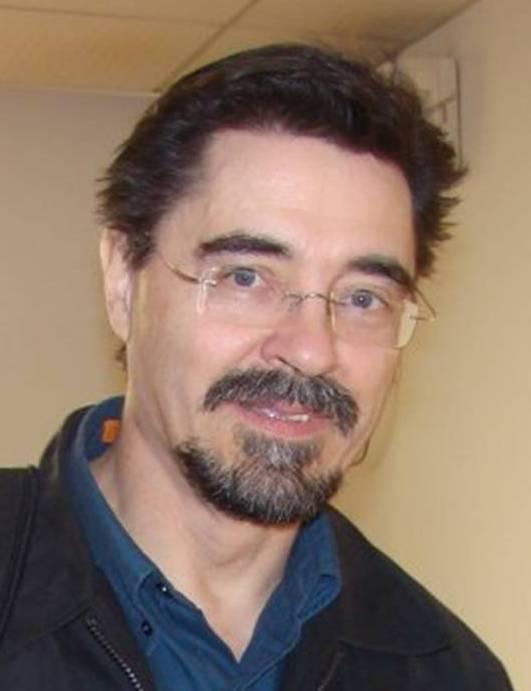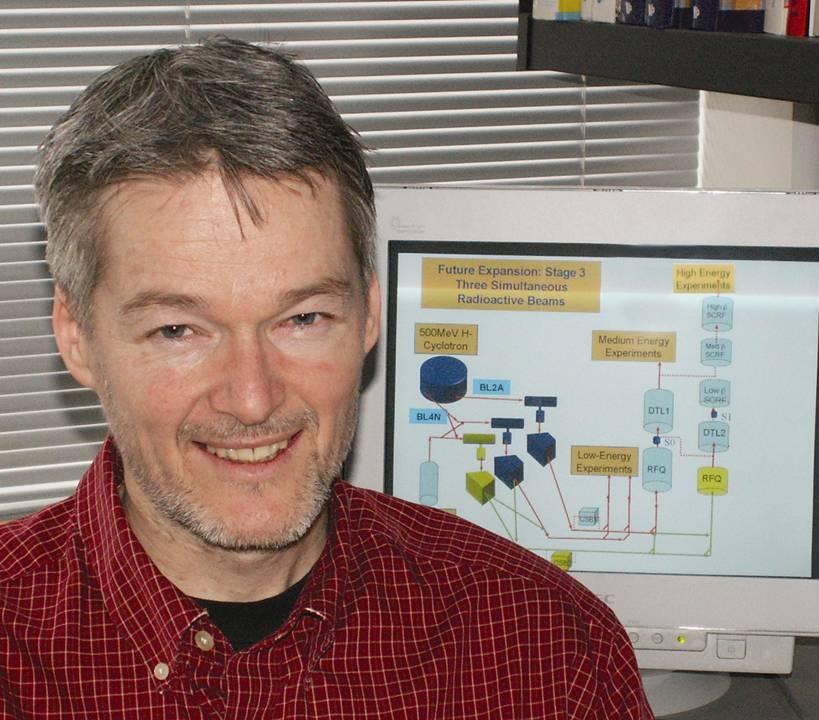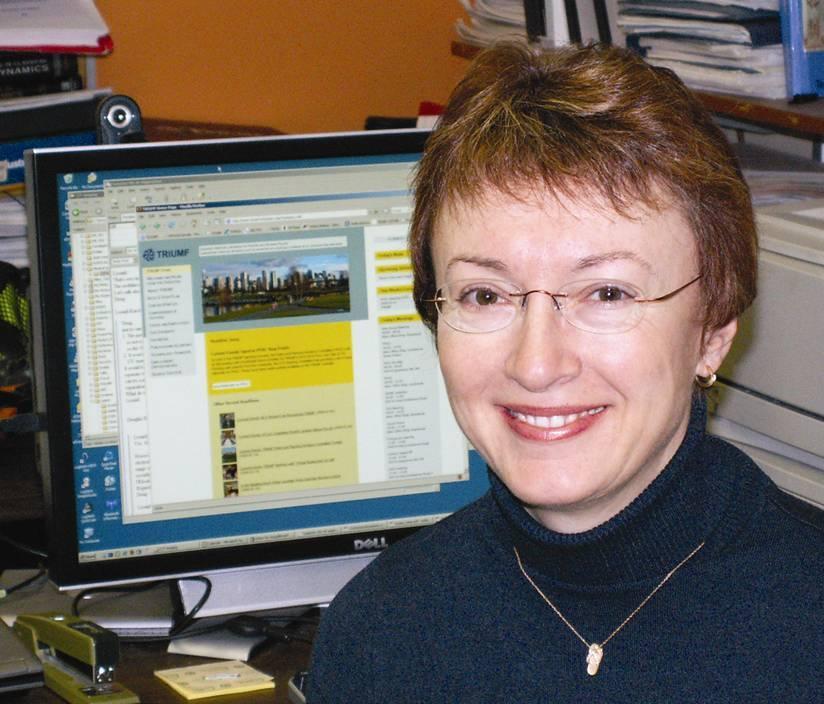Two of TRIUMF's accelerator-physics researchers, Robert E. Laxdal and Richard A. Baartman, and a leading nuclear-physics collaborator from the University of Manitoba, Shelley Page, have been elected to Fellowship in the American Physical Society (APS), an honour reserved for less than half of one percent of the membership of more than 50,000 physicists. Fellowship nominations are prepared by scientific peers and then reviewed by the Council of the APS.
The American Physical Society accepts fellowship nominations each year from its membership. Baartman, Laxdal, and Page were three of the only six Canadian scientists selected in 2009 for this prestigious recognition. In this case, the APS Division of Physics of Beams and the APS Division of Nuclear Physics made the nominations.
The citation for Rick Baartman reads, "For significant contributions to the theory and elucidation of collective instabilities and higher order aberrations in particle accelerators and beamlines." Baartman is Group Leader for Beam Physics at TRIUMF. His accomplishments range from designing high-intensity upgrades to the Main Cyclotron to work with the CERN Large Hadron Collider among many others. Baartman is also involved in the new accelerator-physics graduate program that TRIUMF is launching with the University of British Columbia and the University of Victoria. His current work includes development of fixed-field alternating gradient accelerators, a new proton beam line at TRIUMF, and CERN's Superconducting Proton Linac (SPL).
The citation for Bob Laxdal reads, "For his significant contributions to the design and construction of a new generation of high-gradient CW heavy-ion accelerators, especially the ISAC Separated Function DTL and the ISAC-II superconducting linac, whose cavities have set a world standard." Laxdal is Group Leader for RF and Superconducting RF (radio frequency) at TRIUMF and has been a pioneer in superconducting RF (SRF) technology for advanced accelerators. TRIUMF's ISAC-II accelerator for exotic isotope beams uses SRF components that Laxdal has developed with a local company in British Columbia. Laxdal is leading an international collaboration with India's Variable Energy Cyclotron Centre in Kolkata that will develop accelerator modules for accelerating electrons with SRF. He is also involved with TRIUMF's Beam Delivery Group that oversees the production of exotic isotope beams for ISAC-I and ISAC-II.
The citation for Shelley Page reads, "For her leading role in a series of sequential hadronic parity violation experiments designed to elucidate the interplay of the weak and strong interactions in hadronic systems." Page has been involved in a number of important experiments at TRIUMF since her days as a graduate student. She is co-spokesperson of the Q_weak experiment at the U.S. Thomas Jefferson National Accelerator Facility. Most recently, she is past president of the Canadian Association of Physicists and is looking forward to working with TRIUMF, Japan, and the University of Winnipeg on the Ultra-cold Neutron project.
Baartman, Laxdal, and Page are extraordinary talents and TRIUMF is thrilled to have them recognized internationally. Congratulations!
 |  |  |
--By T.I. Meyer, Head of Strategic Planning and Communications
